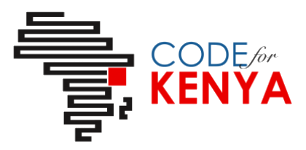•Currently, the only WHO-approved malaria vaccine is the RTSS, which has about 30 per cent efficacy.
•Ghana this week approved the R21 malaria vaccine on the strength of Phase IIB trial results released late last year, showing that it is 77 per cent effective.
Kenya is awaiting results from the final trial involving 4,800 children before it considers licensing a high-performance malaria vaccine that was approved in Ghana.
Ghana this week approved the R21 malaria vaccine on the strength of Phase IIB trial results released late last year, showing that it is 77 per cent effective.
An ongoing larger trial, which was expected to end last month, is assessing efficacy and safety in 4,800 children across five sites in Burkina Faso, Kenya, Mali and Tanzania.
Its results will be released this year.
The World Health Organization is also considering approving the vaccine once the phase III trial results have been published.
A Kenyan Ministry of Health official told the Star that Kenya's licensure will follow that.
However, preliminary results have already been shared with some government bodies in Africa and scientists, showing high levels of efficacy and a reassuring safety profile, according to scientists involved in the study.
About 600 Kenyan children are taking part in phase three trials being conducted in Kilifi by Kemri-Wellcome Trust.
Serum Institute of India sponsored the ongoing trials and has also promised to make 200 million doses every year.
Currently, the only WHO-approved malaria vaccine is the RTSS, which has about 30 per cent efficacy.
Ghana’s approval this week marked the first regulatory clearance for the R21/Matrix-M malaria vaccine for use in any country.
The R21 vaccine candidate was developed by the University of Oxford’s Jenner Institute and will be manufactured by the Serum Institute.
However, Ghana said it will collaborate with SII to produce its doses in Accra.
“DEK Vaccines Limited, an upcoming-vaccines manufacturing factory in Accra, Ghana, is thankful for the support of the government of Ghana through the Vaccines Manufacturing Committee and Ghana FDA, who have been the first in the world to approve the R21/Matrix-M malaria vaccine,” Dr Kofi Nsiah-Poku, the managing director of DEK Vaccines Limited, said in a statement shared by Oxford University.
“We are focused on supporting the Serum Institute of India for their vaccines to be manufactured at DEK upon completion of the DEK Factory. Furthermore, the DEK regulatory team will stand by the Serum Institute to get the R21/Matrix-M malaria vaccine registered in other African countries and make it available to African children.”
Prof Adrian Hill, chief investigator and director of Jenner Institute, said in a statement, “I congratulate our superb clinical trial partners in Africa who have generated the dataset supporting the safety and efficacy of the vaccine in children."
"As with the Oxford-AstraZeneca Covid-19 vaccine, our partnership with the Serum Institute of India has been key to successful very large-scale manufacturing and rapid development.”
The statement said results from the Phase III trials will be published later this year.
Oxford researchers and their partners last year reported from a Phase IIb trial that a booster dose of R21/Matrix-M at one year following a primary three-dose regime maintained high efficacy against malaria, and continued to meet the WHO’s Malaria Vaccine Technology Roadmap goal of a vaccine with at least 75 per cent efficacy.
This followed 2021 results from the Phase-IIb trial reporting that R21/Matrix-M demonstrated high-level efficacy of 77 per cent.
Recent data from the large phase III trial also show high levels of efficacy and a reassuring safety profile, they said.
Adar Poonawalla, CEO of the SII, said in the statement, “The licensure of the R21/Matrix-M Malaria Vaccine for use in Ghana is a significant milestone in our efforts to combat malaria around the world.”
Most Popular
Help Lines
Kenya Police:
(053801053)Kenya Medical Board:
(+254 20 2724938)Ministry of Health:
(+254 20 2717077)Nursing Council of Kenya:
(+254 20 3873556)